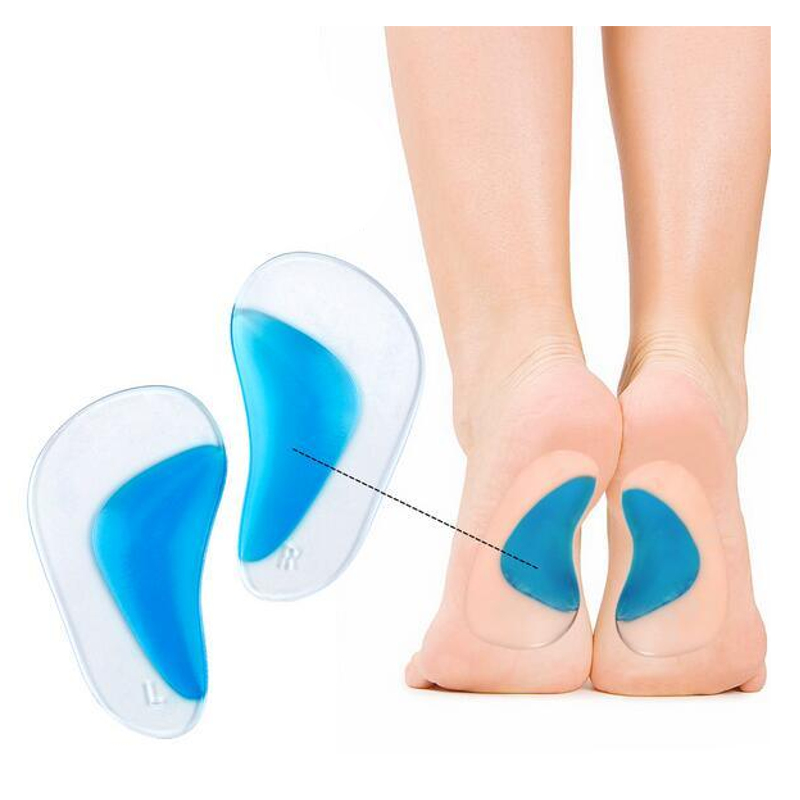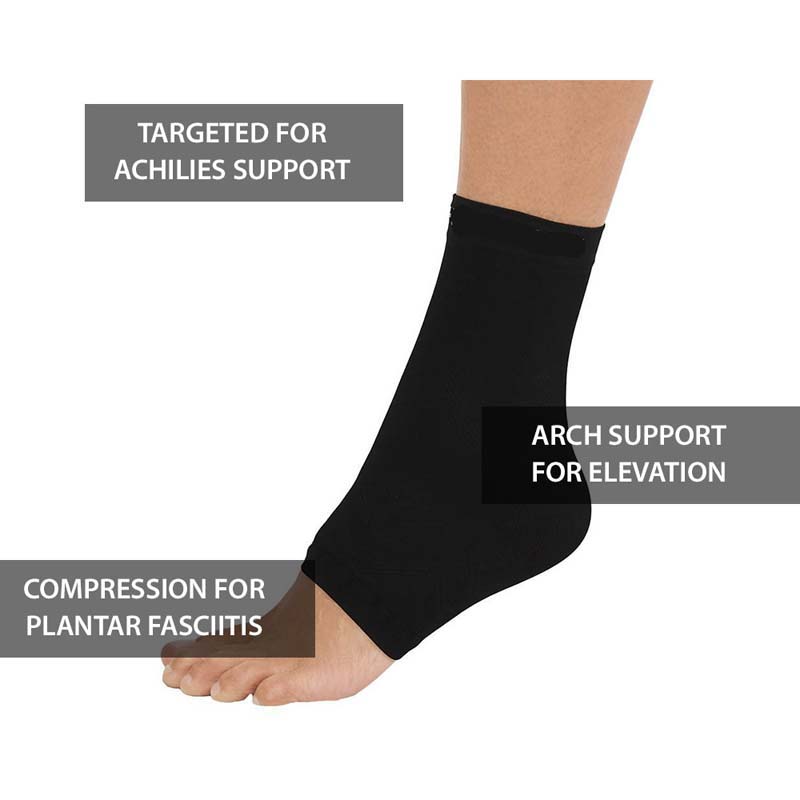Mindfulness and Meditation for Plantar Fasciitis Relief

Featured Products for Plantar Fasciitis Foot Pain Relief
Dealing with the persistent pain of plantar fasciitis can be both physically and emotionally challenging. While traditional treatments focus on the physical aspects of the condition, incorporating mindfulness and meditation techniques into your routine can offer additional relief by addressing the emotional and mental aspects of managing chronic pain. In this blog post, well explore the benefits of mindfulness and meditation for plantar fasciitis and provide practical strategies to integrate these practices into your daily life.
Understanding the Mind-Body Connection:
-
Impact of Stress on Pain:
- Chronic pain conditions, including plantar fasciitis, can be exacerbated by stress and emotional strain. Stress may contribute to muscle tension and inflammation, intensifying pain sensations.
-
Mind-Body Connection:
- The mind and body are intricately connected, and emotional well-being can influence physical health. Mindfulness and meditation promote awareness of this connection, fostering a holistic approach to pain management.
Benefits of Mindfulness and Meditation:
-
Pain Perception:
- Mindfulness techniques can alter the perception of pain by changing the way the brain processes sensory information. This can lead to a reduction in the intensity of pain sensations.
-
Stress Reduction:
- Meditation and mindfulness practices are proven to reduce stress levels. Lowering stress can contribute to a decrease in inflammation and muscle tension, potentially alleviating plantar fasciitis symptoms.
-
Improved Sleep:
- Chronic pain often disrupts sleep patterns. Mindfulness and meditation can promote relaxation, leading to improved sleep quality and better overall well-being.
-
Enhanced Emotional Well-Being:
- Mindfulness fosters emotional resilience, helping individuals cope with the challenges of living with chronic pain. It can reduce feelings of frustration, anxiety, and depression commonly associated with plantar fasciitis.
Practical Strategies for Mindfulness and Meditation:
-
Mindful Breathing:
- Practice deep, diaphragmatic breathing to calm the nervous system. Inhale slowly through your nose, allowing your abdomen to expand, and exhale through your mouth, releasing tension.
-
Body Scan Meditation:
- Conduct a body scan by paying attention to each part of your body, starting from your toes and moving up to your head. Notice any areas of tension and consciously release it.
-
Guided Imagery:
- Use guided imagery to transport your mind to a peaceful place. Imagine a serene beach, a lush forest, or any place that brings you a sense of calm. Visualizing this scene can help reduce stress.
-
Mindful Walking:
- Practice walking meditation by focusing on each step and the sensations in your feet. Be present in the moment, letting go of distractions and stressors.
-
Mindful Eating:
- Pay attention to the sensory experience of eating. Notice the flavors, textures, and aromas of your food. Eating mindfully promotes a connection between your body and the nourishment it receives.
-
Loving-Kindness Meditation:
- Engage in loving-kindness meditation by directing positive thoughts and intentions toward yourself and others. Cultivating a compassionate mindset can positively influence your emotional state.
-
Mindfulness Apps and Resources:
- Explore mindfulness apps and online resources that offer guided meditations and relaxation exercises. These tools can provide support and structure to your mindfulness practice.
Incorporating Mindfulness into Daily Life:
-
Consistency is Key:
- Set aside dedicated time each day for mindfulness practice. Consistency helps establish a routine and allows the benefits to accumulate over time.
-
Start Small:
- If youre new to mindfulness, start with short sessions and gradually increase the duration as you become more comfortable with the practice.
-
Integrate Mindfulness into Activities:
- Bring mindfulness into everyday activities, such as walking, eating, or even washing dishes. Pay attention to the present moment and engage your senses.
-
Mindful Response to Pain:
- When experiencing pain, practice responding mindfully. Instead of reacting with frustration, observe the sensations without judgment. This mindful approach can change your relationship with pain.
Conclusion:
Integrating mindfulness and meditation into your routine can be a valuable complement to traditional treatments for plantar fasciitis. By fostering a mind-body connection, these practices offer a holistic approach to pain management, addressing both the physical and emotional aspects of living with chronic pain. Whether through deep breathing, guided imagery, or other mindfulness techniques, taking the time to cultivate awareness can contribute to a more resilient and balanced mindset in the face of plantar fasciitis challenges. If youre new to mindfulness, consider exploring various techniques and finding what resonates best with you, and remember that seeking professional guidance is essential for a comprehensive approach to pain management.
Featured Products for Plantar Fasciitis Foot Pain Relief
Latest Blogs
- Taking a Stand Against Heel Pain: Practical Solutions
- Happy Heels, Happy Life: Banishing Foot Pain for Good
- The Road to Relief: Strategies for Combating Heel Pain
- Heel to Toe Wellness: Tackling Foot Pain Head-On
- Foot Pain Decoded: Understanding the Signals Your Feet Send
- Soothing Steps: Natural Remedies for Heel and Foot Pain
- Putting Your Best Foot Forward: Managing Heel Discomfort
- The ABCs of Happy Feet: Beating Heel and Foot Pain
- From Heel to Toe: Navigating Common Foot Pain Issues
- Taking a Step Back: Causes and Remedies for Heel Pain
- Footloose and Pain-Free: Tips for Happy Heels and Feet
- Soleful Solutions: A Guide to Alleviating Heel and Foot Discomfort
- Stepping Into Comfort: Understanding Heel and Foot Pain
- From Pain to Progress: Inspiring Plantar Fasciitis Journeys
- Living a Full Life with Plantar Fasciitis: Success Stories
- Plantar Fasciitis and Exercise: Finding the Right Balance
- The Impact of Stress on Plantar Fasciitis Symptoms
- Plantar Fasciitis: When to Seek Professional Help
- Inflammatory Foods and Plantar Fasciitis: What to Avoid
- Ergonomics and Plantar Fasciitis: A Comprehensive Guide
- The Importance of Rest in Plantar Fasciitis Recovery
- Traveling with Plantar Fasciitis: Tips for Happy Feet
- Plantar Fasciitis and Your Sleep: Improving Rest Quality
- The Psychological Aspect of Living with Plantar Fasciitis
- Plantar Fasciitis and High-Impact Activities: Navigating Risks
- How to Stay Active with Plantar Fasciitis: Practical Tips
- Plantar Fasciitis and Aging: Strategies for Seniors
- Cryotherapy for Plantar Fasciitis: Icy Relief for Your Feet
- Aquatic Exercise for Plantar Fasciitis: Dive into Healing
- Mindfulness and Meditation for Plantar Fasciitis Relief
- Heel Pain 101: A Guide to Plantar Fasciitis
- Finding Relief - Plantar Fasciitis Home Remedies
- The Emotional Toll of Chronic Plantar Fasciitis
- Post-Workout Foot Care for Plantar Fasciitis Sufferers
- DIY Foot Massage Techniques for Plantar Fasciitis
- From Diagnosis to Recoveryc- Navigating Plantar Fasciitis
- Plantar Fasciitis in Children Signs and Solutions
- Plantar Fasciitis and Weight: Impact on Foot Health
- How Nutrition Affects Plantar Fasciitis Recovery
- Yoga for Plantar Fasciitis: Poses for Pain Relief
- Breaking Down Plantar Fasciitis Myths and Misconceptions
- Plantar Fasciitis Stretches - Daily Routine for Relief
- The Link Between Plantar Fasciitis and Flat Feet
- Plantar Fasciitis in Pregnancy - What to Expect
- Desk Job Dilemma - Coping with Plantar Fasciitis at Work
- Plantar Fasciitis in Athletes Strategies for Recovery
- Massage and Plantar Fasciitis A Soothing Combination
- Plantar Fasciitis at Night: Tips for Better Sleep
- Plantar Fasciitis vs Heel Spurs - Understanding the Difference
- The Role of Stretching in Plantar Fasciitis Recovery
- Running with Plantar Fasciitis: Dos and Donts
- Preventing Plantar Fasciitis: Tips for Foot Health
- Natural Remedies for Plantar Fasciitis You Havent Tried
- Heel Pain Demystified: Plantar Fasciitis Explained
- Best Shoes for Plantar Fasciitis: A Comprehensive Guide
- Managing Plantar Fasciitis Pain: Tips and Tricks
- The Complete Guide to Plantar Fasciitis Treatment Options
- 10 Effective Exercises for Plantar Fasciitis Relief at Home
- Understanding Plantar Fasciitis: Causes and Symptoms
- Why do I get Pain in My Feet at Night
- Is pain in your feet a sign of diabetes
- What causes pain in my feet
- Plantar Fasciitis - Why so Painful
- What is that pain in my heel
- Should I Walk with Foot Pain
- How to Treat Ankle Pain
- 10 Best Exercises of Plantar Fasciitis
- Do Compression Socks Help Foot Pain
- Do Insoles Work for Foot Pain
- Best Stretches for Plantar Fasciitis
- 5 Causes of Plantar Fasciitis
- Do Back Posture Braces Actually Work
- Foot pain from walking
- Best Insoles for Plantar Fasciitis
- Pain in heel of foot after Running
- Treatment for Pain in arch of foot
- Pain on top of foot
- Mortons neuroma treatment
- How to remove an Ingrown Toenail
- Foot Heel Spur Pain
- Sore Foot in the Morning
- Suffer Heel Pain in the Morning ?
- Start a running routine
- Running through Fatigue
- Best Achilles Tendonitis and Ankle Excercises
- Causes of Achilles Tendonitis and Ankle Pain
- Plantar Fasciitis Cure and Treatment
- Best Plantar Fasciitis Products
- Causes of Plantar Fasciitis and Heel Spur Pain
- Best Plantar Fasciitis Excercises



















